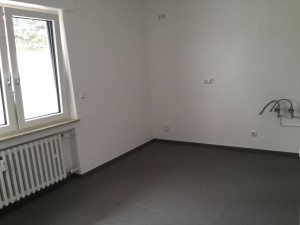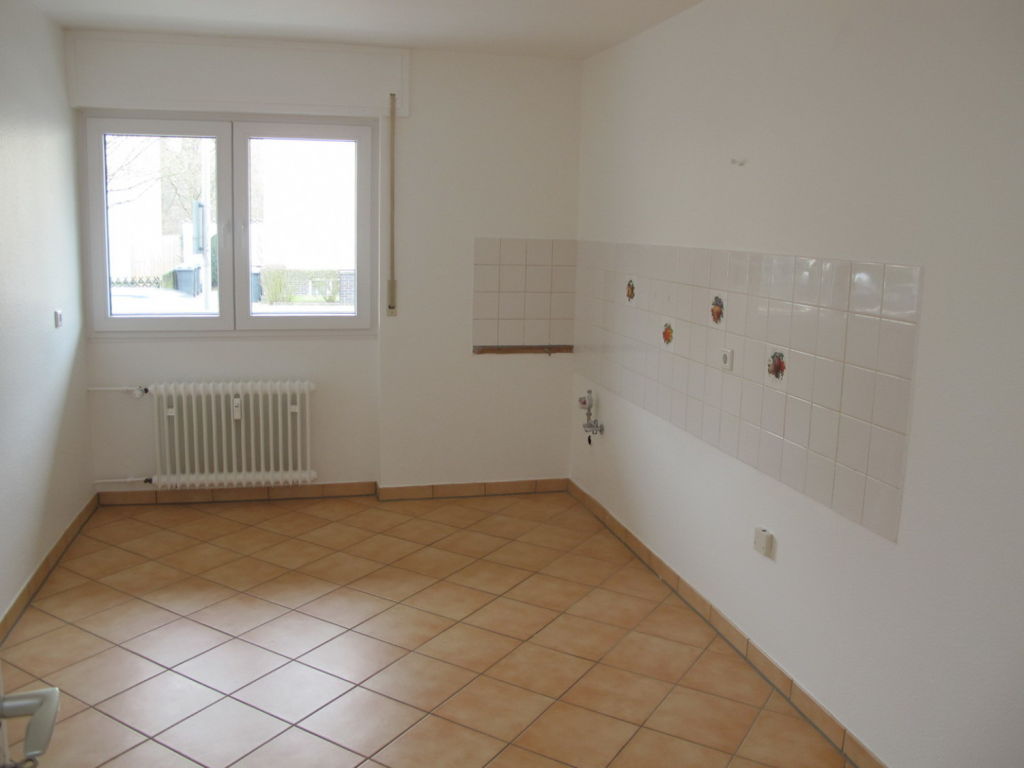I’ve spent most of my life living in the USA. I lived in Frankfurt, Germany from birth until age 7 and I spent 2.5 years in Israel between April 1998 and end of 2000. Otherwise, it’s all US, ranging from living with parents, college fraternity life, roommate in Silicon Valley, and finally owning. I own some property that I rent out and like anyone else who has a pickup truck, I’ve helped lots of people move.
None of that hinted at the surprises I had here.
No kitchen
About half of the apartments on the market have no kitchen. Yes, they do have a room where the kitchen will go, but… Here are two random kitchen pictures I’ve lifted off of
https://www.immobilienscout24.de which is the main way people find a place.


It seems there are some things missing. What could it be? hmm. They are very nice. Good to have a window. The tile is a little outdated perhaps, but it seems that there’s something else not quite right about these kitchens. It would be nice if they had a pantry, but still, there’s something else but I can’t quite put my finger on it. A built in microwave would be convenient.
Oh wait!!! The cabinets are missing! And there’s no stove! Where’s the fridge?!
That’s right, you get a couple outlets, some water connections and that’s it. It’s on you as the renter to put these in yourself.
Household appliances
In the US a kitchen remodel starts about probably $10k and can quickly go up from there. Stuff is way cheaper here.
Dryers are interesting. In the US, I’ve never seen anything other than a venting dryer. It heats air, lofts it through the clothes and vents outside. Here, most apartments are not able to accommodate this. Your dryer has to capture the moisture it removes and there are two main ways to do this:
Kinda like when an air conditioner drips water. According to wikipedia
1 “Heat pump dryers can therefore use up to 50% less energy required by either condensation or traditional dryers.”
Energy Efficiency matters
I believe that in my town here electricity costs about 0.25 euros per kilowatt/hour which is about double what it costs in Portland. Clothes dryers here in the EU have energy ratings ranging from C to A+++.
- A+++ uses 172kWh/160 cycles/year. $43/year assuming the 160 cycles
- C (only venting dryers) uses 480kWh/160 cycles/year. $120/year.
If you have kids, you can easily go well beyond 160/year. I’d guess Robie does laundry 5 days out of the week. Even for the two years that we plan on staying here, it was worth it to spring for a better dryer. We paid 411 euros for a heatpump model.
Lighting fixtures
When we moved in, I was surprised to find out that you have to provide your own ceiling lights. The previous tenants had left the light in the bathroom as well as the one in the kitchen. In the end, I had to buy and put in 12 ceiling/wall
2 lights. The previous people were also nice enough to leave a medicine cabinet in one of the two bathrooms. Note that I’m not talking about just the light bulbs but the entire fixture. There are wires coming out of the ceiling and that’s it. If you’re not comfortable with 220v electricity, you need to ask a friend or call an electrician.
Voltage matters
If you get electrocuted, it’s the current/amps that matters. Otherwise, voltage is more important. In most of Europe, household electricity is 220v instead of the 110v that Americans are used to. This is important because it enables higher power stuff.
In the US, most outlets are rated for 15amps. The circuit breakers in our German apartment are 16amp.
110Vx15A=1650Watts
220Vx16A=3520Watts
Boiling water.
Our water kettle dumps 2200 Watts into water, and the difference is noticeable. Much faster boil times.
Our
clothes Iron is rated at 2400 Watts.
Our
Dryer can plug into any outlet in the apartment. When buying a dryer in the US, you have to buy a
$15 cord just to get the delivery people to plug it in.
The only appliance that you can’t plug into any regular outlet is the cooktop. Here’s a picture of the power main at my step-dad’s apartment
3

Because of the 500V, on-demand hot water is also possible. In the US, you can only do on-demand with gas.
4
BTW, our apartment came with a kitchen. I do wish I could swap the cooktop with a induction model and we just might do that as the one we have has some things about it that are rather goofy.
5
Follow up and would like an editor
It usually takes forever for me to get one of these posts out. This one started probably 6 months ago. There are two reasons for this:
- I don’t want to miss any fun points
- I try to honor your time by taking my time to make my posts as coherent as I’m capable of.
I want to improve this in two ways. First, if you care to help me by being a first set of eyes, an editor of sorts, I would like to try that. Let me know.
Second, I’ll address points I missed in previous post via a follow up section. This is something one of my favorite podcasters
John Siracusa has made a hallmark of his work. His shows all begin with follup up. I’ll add them to the end of my posts under the logic that only those that make it to the end of a post even care about any possible additions.
So followup:
In a
previous post, I mentioned that Germany tried to draft me and that many young Germans are doing civil service instead. It was pointed out to me by my step-dad’s wife Nada that the
draft ended in 2011
When talking about
alcohol in Germany, I forgot to mention a funny story; a conversation I had with my aunt Sieglinde. My aunt is 83, one of my grandmother’s sisters. I was visiting her over the summer and she asked me if I wanted anything to drink. I looked around for a clock and asked if it was too early to have a beer and anyway, how late in the day does it need to be to have a beer. Her answer: “when I’m thirsty. If it’s 9am and I want to drink a beer, I have a beer.”. Then my 83 year old aunt got me a beer at 11am.
There are surely other follupups (some call it FU), but I can’t remember them at the moment.


